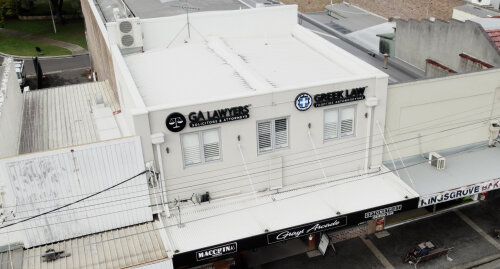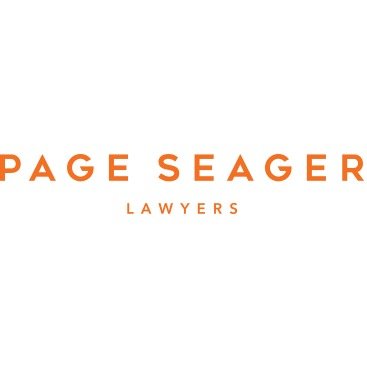Best Marine Insurance Lawyers in Australia
Share your needs with us, get contacted by law firms.
Free. Takes 2 min.
Or refine your search by selecting a city:
List of the best lawyers in Australia
About Marine Insurance Law in Australia
Marine Insurance in Australia is a specialized field that provides coverage for loss or damage to ships, cargo, terminals, and any transport by which goods are transferred, acquired, or held between points of origin and final destination. It is governed primarily by the Marine Insurance Act 1909 (Cth), which is based on English law but has been adapted to suit local conditions and requirements. The Act sets out the fundamental principles of marine insurance contracts, including the duty of utmost good faith, indemnity, and liability for marine perils.
Why You May Need a Lawyer
There are several instances when you might need legal assistance in marine insurance. These include disputes over policy terms, claims for loss or damage that have been denied or underpaid, and interpreting complex insurance contracts. Additionally, legal advice may be necessary when negotiating insurance policies, understanding international trade laws, or dealing with subrogation claims. A lawyer specialized in marine insurance can provide invaluable guidance in navigating these complicated issues.
Local Laws Overview
Australia's marine insurance framework is largely influenced by the Marine Insurance Act 1909, which underscores principles such as indemnity, insurable interest, and the duty of disclosure. Key aspects include:
- Utmost Good Faith: Parties must deal honestly and disclose all relevant information.
- Insurable Interest: The insured must have a legal or equitable relation with the subject matter.
- Subrogation: The insurer can claim the rights of the insured once the claim is paid out.
- Parting of Risks: Coverage extends to the transfer of goods until they reach the destination.
- Warranties: Specific conditions that must be met for the policy to remain valid.
Frequently Asked Questions
What is covered under marine insurance?
Marine insurance generally covers loss or damage to ships, cargo, terminals, and the insured's liability for third-party damage due to ship collision or operational damages.
Is marine insurance mandatory in Australia?
Marine insurance is not mandatory but is highly recommended to mitigate risks associated with shipping and transport of goods.
What are marine perils?
Marine perils are risks associated with maritime navigation such as storm, collision, piracy, and other sea-related incidents.
What should I do if my marine insurance claim is denied?
Review the denial letter for reasons, gather supporting documentation, and consider consulting a lawyer specializing in marine insurance for guidance or appeal.
Can I modify my marine insurance policy after it's issued?
Yes, but modifications are subject to the insurer's approval and may require an endorsement to the original policy.
How is the premium for marine insurance determined?
The premium is calculated based on factors such as the type and value of cargo, route, level of coverage, and past claims history.
What is the principle of subrogation in marine insurance?
Subrogation allows the insurer to assume the rights of the insured to seek recovery from third parties responsible for the loss after a claim has been paid.
Are there specific exclusions in Australian marine insurance policies?
Common exclusions include losses due to the willful misconduct of the insured, inherent vice, and delay in transit.
Do environmental laws affect marine insurance?
Yes, environmental laws can impact liability coverage, especially considering pollution risks and regulatory compliance.
What is the procedure for filing a marine insurance claim?
The procedure involves notifying the insurer, documenting the loss with evidence, submitting a claim form, and cooperating with the insurer for assessment and adjustment.
Additional Resources
Consider reaching out to the following for further information or assistance:
- Australian Financial Complaints Authority (AFCA): Offers dispute resolution between insurers and policyholders.
- Insurance Council of Australia (ICA): Provides general insurance advice and industry advocacy.
- Australian Maritime Safety Authority (AMSA): Regulates maritime safety and protection of the marine environment.
- National Insurance Brokers Association (NIBA): A representative body for insurance brokers within Australia.
- Australian Securities and Investments Commission (ASIC): Regulates financial services and enforces laws to protect consumers.
Next Steps
If you require legal assistance in the field of marine insurance, consider taking the following steps:
- Document all relevant information regarding your insurance policy and claim disputes.
- Consult an experienced marine insurance lawyer to assess your situation and provide tailored advice.
- Explore alternative dispute resolution mechanisms such as mediation if suitable.
- Contact industry associations and regulatory bodies for guidance and support.
- Stay informed about your rights and obligations under the Marine Insurance Act 1909.
Lawzana helps you find the best lawyers and law firms in Australia through a curated and pre-screened list of qualified legal professionals. Our platform offers rankings and detailed profiles of attorneys and law firms, allowing you to compare based on practice areas, including Marine Insurance, experience, and client feedback.
Each profile includes a description of the firm's areas of practice, client reviews, team members and partners, year of establishment, spoken languages, office locations, contact information, social media presence, and any published articles or resources. Most firms on our platform speak English and are experienced in both local and international legal matters.
Get a quote from top-rated law firms in Australia — quickly, securely, and without unnecessary hassle.
Disclaimer:
The information provided on this page is for general informational purposes only and does not constitute legal advice. While we strive to ensure the accuracy and relevance of the content, legal information may change over time, and interpretations of the law can vary. You should always consult with a qualified legal professional for advice specific to your situation.
We disclaim all liability for actions taken or not taken based on the content of this page. If you believe any information is incorrect or outdated, please contact us, and we will review and update it where appropriate.
Browse marine insurance law firms by city in Australia
Refine your search by selecting a city.

















